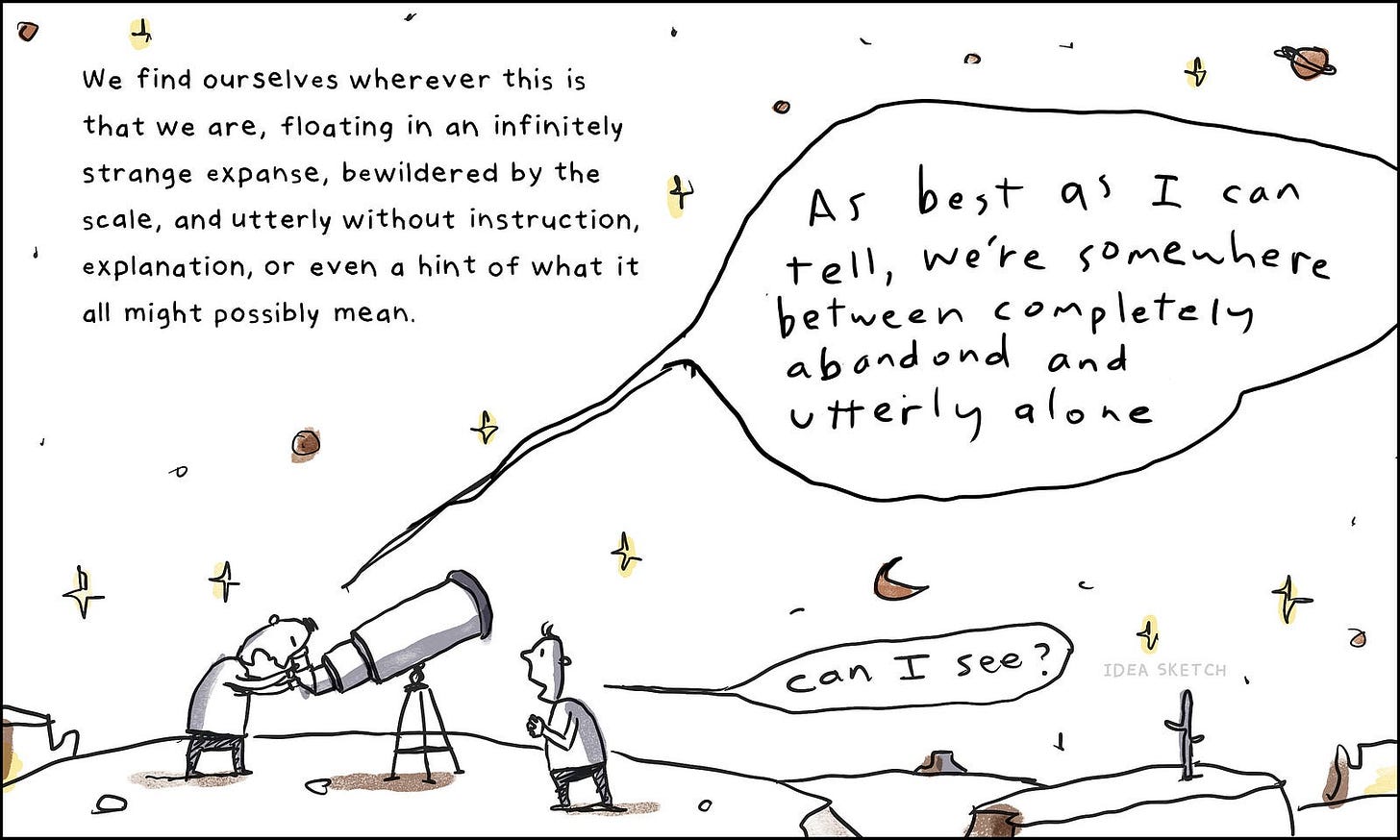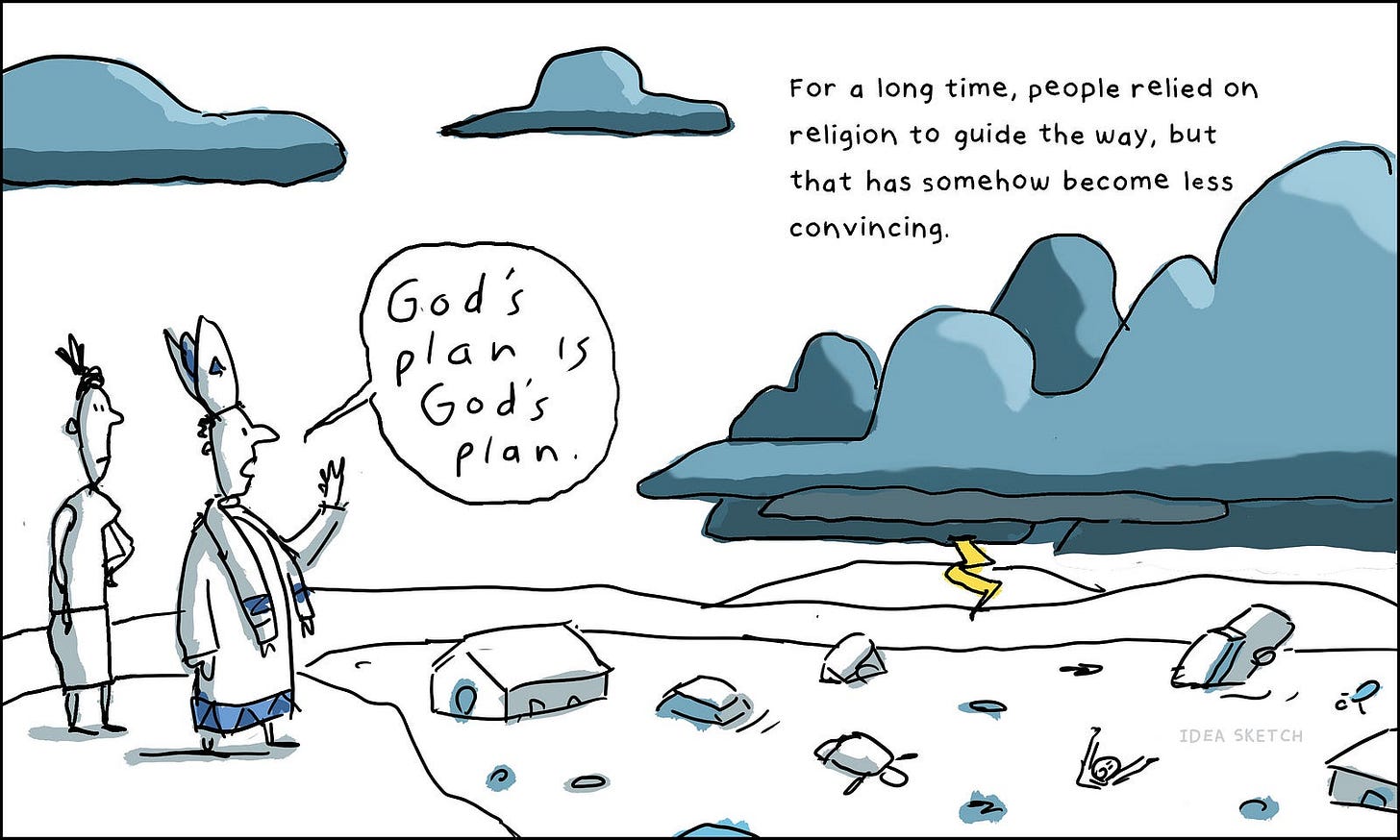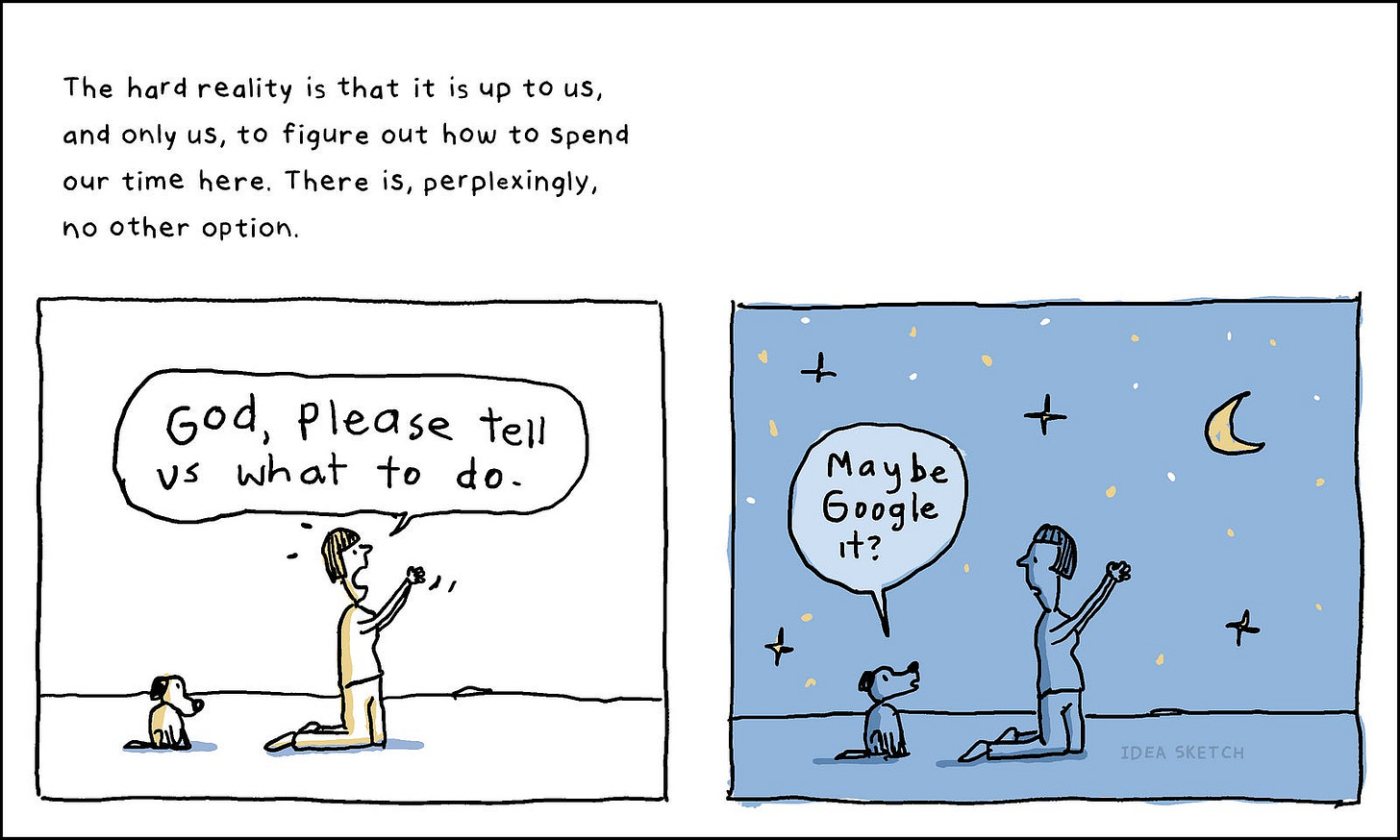What To Do
Introduction
After a recent run-in with cancer, I have reacquired the reality that we never know how much time is left. So, I’m turning my attention back to books, but this time to the ones I’m here to write, with or without “enough” followers.
The first book is essentially a brain owner’s quick-start user guide, tentatively called What To Do. It’s a distillation of what I’ve learned on my long journey to feel okay, which I’m finally starting to do. This first post is the Introduction. I’ll be posting my progress as I develop the material and test the concept.
Let me know what works for you and what doesn’t.








Okay...you asked for what works and what doesn't. Keep in mind that I understand your ideas here and appreciate the implied emotions along with the sheer creativity. But instead of simply saying "how nice," I'm questioning what seem to be basic assumptions.
1.) "...brain owner's quick start user's guide." Do humans own them like physical consumer goods or private property, as if it's natural to consider everything as economic transactions? Why "brain" as if mind or consciousness is merely an emergent function of biomechanical processes when there is no supporting empirical evidence? That's why cognitive scientist and philosopher David Chalmers coined the term "the hard problem of science."
2.) The 1st panel begins "we find ourselves.." Be very, very careful about "we." In the '60s, there was a joke about the main characters of a U.S. TV program. The Lone Ranger and Tonto are surrounded by what appear to be hostile Indians. The Lone Ranger, alarmed, says "we have to fight, them Tonto!" To which Tonto replies "what's this 'we,' white man?!" Indigenous peoples do not all find themselves alienated from their earthly roots or alone in a meaningless universe.
Plus this appears as if assuming relevant can only come from western scientific models. I'd say to the "can I see" person if you think the narrow reality tunnel of a telescope is all you need you will never be able to see.
3.) The 2nd panel "...people relied on religion to guide the way...now less convincing." This edges on the rationalist misunderstanding of religion as assent to authority and to exact rules. Which fails to realize the impact of spiritual encounters and direct experiences with transcendence. I agree with "less convincing," but the question is: for whom? How? Why? An analogy--scientifically, a painting is a chunk of cloth with splotches of pigment. It is the artistic, poetic, mystical, and spiritual functions that give it meaning. For neuroscientists like Iain McGilchrist, a professor of poetry before he went to medical school, that's the difference in function between the left hemisphere and the right hemisphere of the brain. BTW, he for sure does not equate consciousness with brain.
4.) The 3rd I'd say something like for the 2nd. And ask: how do you know there is no other option? I do think similarly, just reluctant to assent to any certainty. Interestingly, per McGilchrist, certainty is a left hemisphere preference. IMO like writer Colin Wilson on the skeptic Martin Gardner: "I wish were half as certain about anything as he is of everything."
5) The last panel. An appeal to common sense is problematic because all too often in history that was used as justification of outright prejudice. Like when everybody (including Ivy League professors) 'knew' non-whites were inferior. The moral equivalent is to claim everybody can see the value of agreeing to the Golden Rule, do unto others. Not so for the few powerful enough not to care about irrelevant lessers; that's how the econ system and its political subsidiaries currently work. As for meaning, that's a right hemisphere function. A hint that (re)connecting with the arts and making room for other realities like mysticism, roots in nature, and spiritual experiences are paths to what is truly needed. Especially for Europeans and their descendants who still live in the disconnected, limited world of the Enlightenment.
How do we order your book? JC is nearing end of his journey through cancer to health! We are so thankfull. I think he would so enjoy this book you are creating.